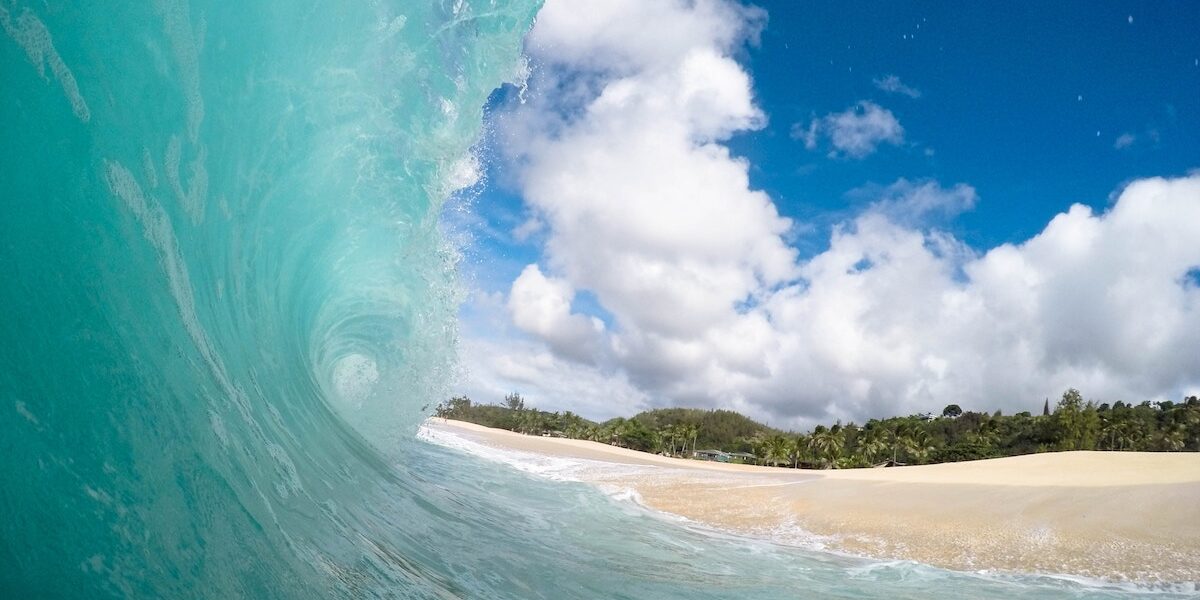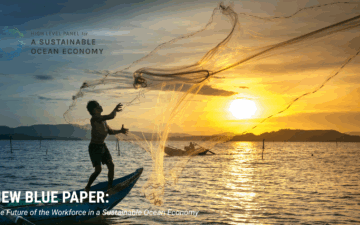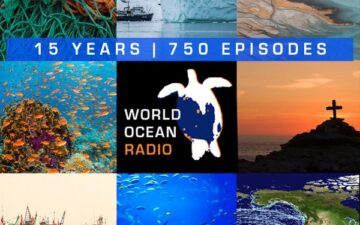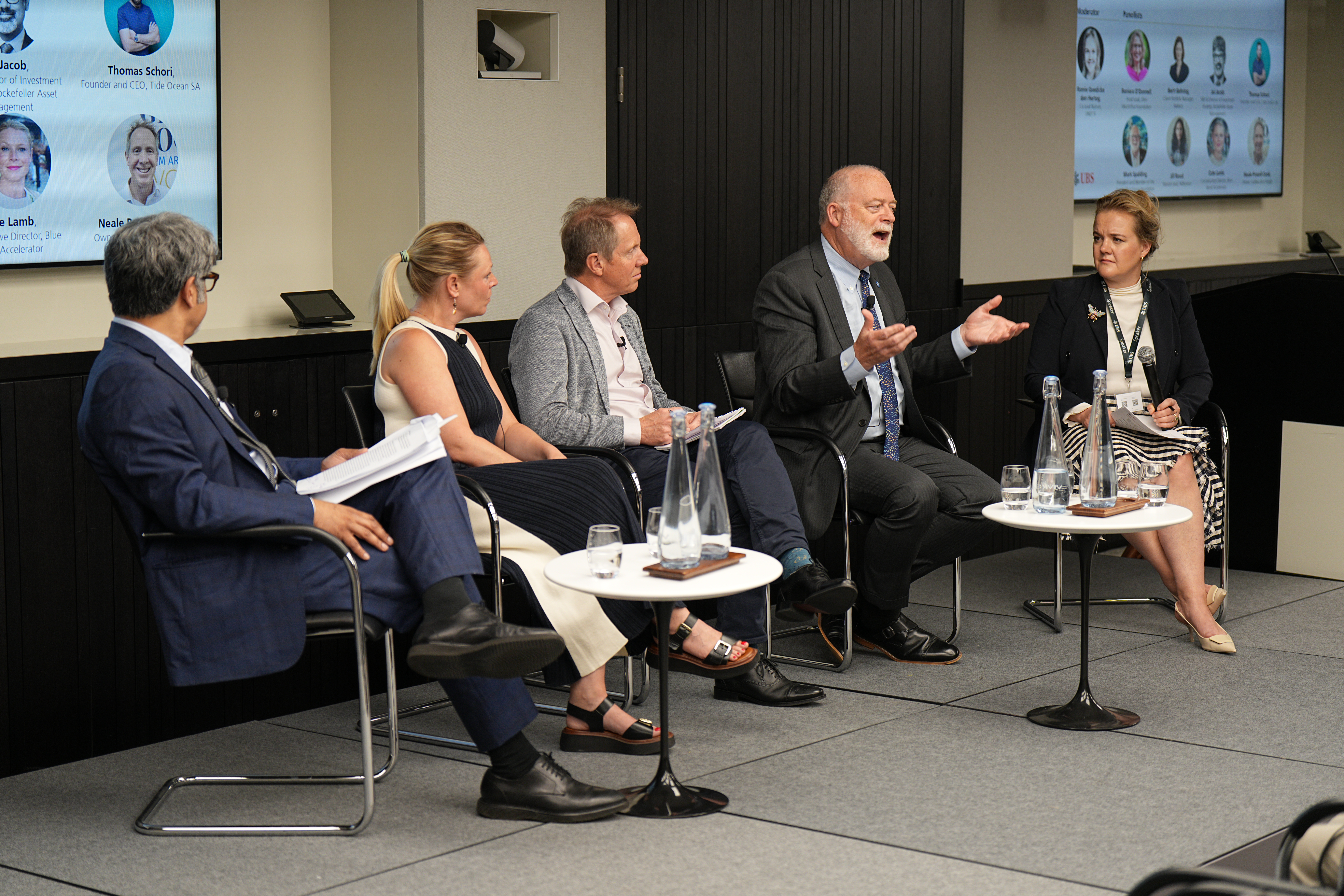By: Kate Maude
For most of my childhood, I dreamt of the ocean. Growing up in a small suburb of Chicago, family trips to the coast only occurred every two or three years, but I jumped at every chance to learn more about marine environment. The shocking images of deep-sea creatures and the magnificent diversity of coral reefs that I came across in books and at aquariums amazed my young mind and, at eight years old, led me declare my intent to become a marine biologist to all those who would listen.
Although I would love to say that my childish declaration of my intended future career came true, I am not a marine biologist. I am, however, the next best thing: a marine advocate. While not my official title or my full-time job (at the moment, that would be backpacker), I consider my ocean advocacy work to be among my most important and rewarding undertakings, and I have The Ocean Foundation to thank for giving me the knowledge necessary to be a successful advocate.
In college, I wavered between majors for quite a while before settling on completing degree in Geography and Environmental Studies. In 2009, I studied abroad for a semester in New Zealand. When selecting my classes for the semester, I jumped at the opportunity to enroll in a marine biology course. The pure joy I derived from reviewing scientific articles on the impact of climate change on intertidal zones and surveying the tidal areas for marine life helped solidify my desire to involve myself with marine matters, and I began to look for work for the following year that would allow me to pursue my interest in the ocean. In the fall of 2009, I found myself working as a research intern at The Ocean Foundation.
My time at the Ocean Foundation allowed me to explore the world of ocean conservation and learn about the various ways scientists, organizations, educators, and individuals work to encourage the protection and rehabilitation of marine environments. I quickly realized protecting the ocean didn’t require me to be a marine biologist, just a concerned, proactive citizen. I began to find ways to incorporate marine conservation into my schoolwork and my everyday life. From writing a research paper on the status of precious corals for my conservation biology class to changing my seafood consumption, the knowledge I gained at the Ocean Foundation allowed me to be a more conscientious citizen.
After graduating from college, I decided to enroll in an AmeriCorps program on the West Coast. In ten months with a team of 10 other young people, I found myself completing watershed restoration work in Oregon, working as an environmental educator in the Sierra Nevada mountains, assisting with the maintenance and operations of a San Diego County park, and creating a disaster preparation plan for a nonprofit organization in Washington. The combination of rewarding work and amazing locations revitalized my interest in community service and allowed me to talk about ocean conservation in a wide variety of contexts to crowds that might not normally think about ocean conservation as their responsibility.
As the designated Service Learning Coordinator for my AmeriCorps team, I also arranged visits to science museums with exhibits on ocean ecology and organized viewings and discussions of documentaries, including The End of the Line, a movie I first viewed as part of my work at the Ocean Foundation. I passed around the book Four Fish to my teammates, and worked in the importance of the health of the oceans to our watershed workdays in Oregon and the environmental education work we conducted in the Sierra Nevada Mountains. While for the most part, my primary duties did not involve advocating for marine conservation, I found it easy to incorporate into my work, and I found my target audiences receptive and interested.
After spending a year away from the Mid-Atlantic, I decided to return to the area to enroll in another AmeriCorps program. Run by the Maryland Department of Natural Resources, the Maryland Conservation Corps provides young people of varying backgrounds the opportunity to work in a Maryland State Park for ten months. Of the many tasks that Maryland Conservation Corps members complete, Chesapeake Bay restoration and education work is often considered a highlight. Ranging from bay grass planting with the Baltimore National Aquarium to leading programs on the history of marine environments in the area, the Maryland Conservation Corps allowed me to simultaneously learn and teach the public about the importance of the marine environment to the health, prosperity, and happiness of Marylanders. While my work did not solely focus on marine conservation, I found that my position gave me an excellent platform to advocate for the protection of our nation’s coastal resources.
I still have days where I long to revisit my childhood dream of becoming a marine biologist, but I now realize that I don’t need to be one to help conserve the ocean. My time with The Ocean Foundation helped me realize that speaking up for the ocean, even when such discussions are informal or only make up part of my work, is much better than letting such opportunities pass by. Interning at The Ocean Foundation gave me the tools to become an advocate for the ocean in all aspects of my life, and I know that the sense of wonder I get when exploring a new coastline or reading about a recent oceanic discovery will keep me advocating for our world’s waters for years to come.
Kate Maude worked as a TOF research intern in 2009 and 2010, and graduated from The George Washington University in May 2010 with degrees in Environmental Studies and Geography. After graduating, she spent two years as an AmeriCorps member on the West Coast and in Maryland. She recently returned from a three-month stint as a volunteer worker on organic farms in New Zealand, and is currently living in Chicago.







